My guide for the day, Valery Brady, began my tour of Chisinau, Moldova, at the Pushkin Museum. Alexander Pushkin, considered to be Russia’s greatest poet and the founder of modern literature, angered Emperor Alexander I with his poem, “Ode to Liberty,” which was critical of the regime. As a result, in May of 1820 he was banned from St. Petersburg for six years. Initially he traveled around the Caucasus and Crimea, but the Russian regime eventually exiled him to Chisinau, where he lived for three years in a typical Moldovan cottage located within what is today the museum compound.
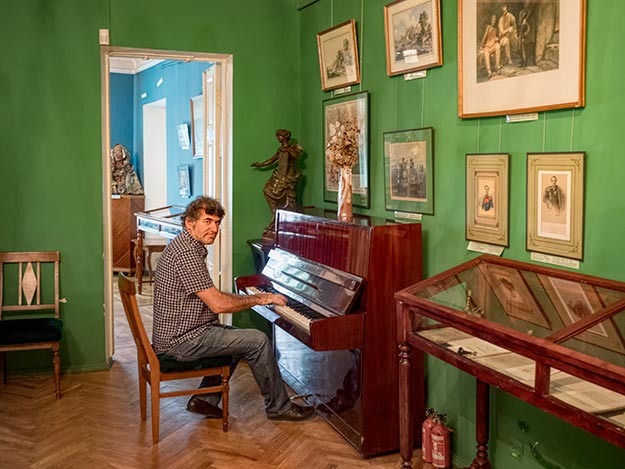
While I looked around the cottage, my guide serenaded me on the museum’s old upright piano. Valery is a classically trained musician who, in his own words, is doing nothing with his music. As the day wore on it became more and more evident that he was unhappy. Our talk turned to spiritual matters and he asked my opinion on the meaning of life. For more than an hour we discussed subjects ranging from quantum physics to the nature of God. Valery shared with me that he’d been suffering terribly from the loss of two very important people in his life: a young relative and his mother-in-law, whom he had loved dearly. I don’t know what I said or did, but at the end of our tour, he told me he’d started the day believing that there is no point to life, but that I had turned his opinion around 180 degrees. He said everything around him looked different – even the colors were richer – he felt joy in a way that he hadn’t for a very long time.
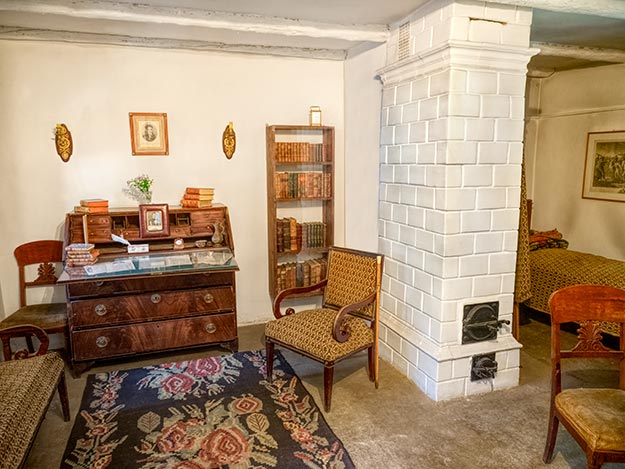
Absorbed in conversation, our four-hour tour stretched to six hours. We drove into the surrounding countryside, where a reed-dotted lazy river meandered through lush rolling hills and vineyards swept to the horizon. Valery grinned as he turned into Cricova Winery, surprising me with a visit to the second largest underground wine cellar in the world. Even though it had not been part of our original itinerary, he was able to arrange an impromptu tour of the cellars, which are nearly 125 miles long.
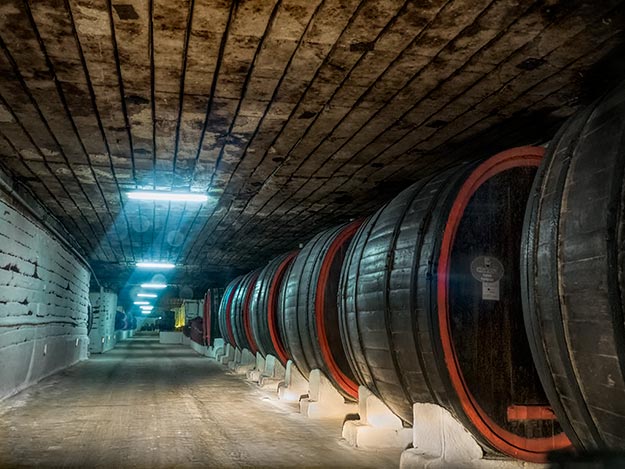
More than 1,200,000 bottles are on display in these tunnels and tasting rooms, which have been carved out by limestone mining operations over the centuries (click here to see a photo of the Sea Bottom tasting hall). Unlike the cellars of many wine making companies, these tunnels have no air conditioning or artificial ventilation systems. The unique micro climate within them is perfect for the production and maturation of high quality wines. Moldovan wines occupy 13-20th place in world list in terms of production, and in terms of quality, they are considered quite good – four star.
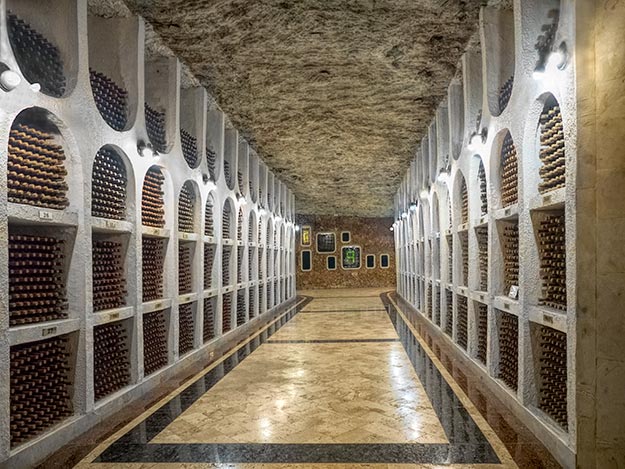
After lunch, Valery drove me through several typical villages, past local reservoirs, and around Chisinau neighborhoods I’d not previously seen. But the best part was being able to talk to someone who was born and raised in Moldova and understands the history and the mentality of the people. The country declared its independence in August of 1991, following the breakup of the Soviet Union. The major industry back then, as now, was agriculture, with wine being the most important product. Under Soviet domination a few industries existed, but as in all Soviet satellite countries, those in Moldova had never been required to turn a profit. Once the Soviet subsidies ceased, the factories were quickly shuttered.
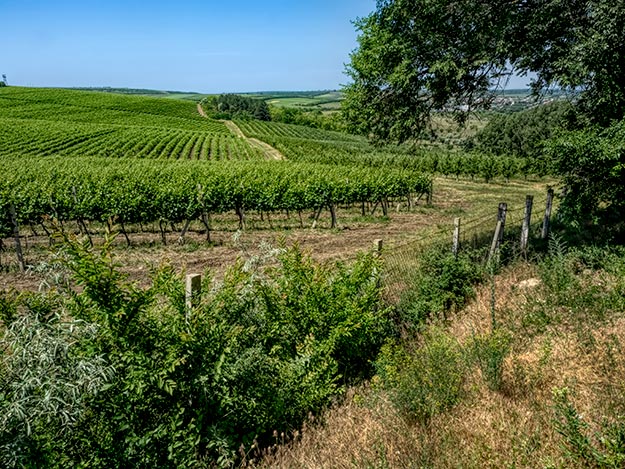
Wine propped up the economy of the fledgling democracy until tensions flared between the Republic of Moldova and the region known as Transnistria. Geographically defined as the area between the Dniester River and Ukrainian border, but also including the city of Bender and its surrounding localities on the west bank of the river, this area is home mostly to ethnic Russians. By March of 1992, fighting broke out between the two sides. A cease fire was negotiated three months later, with the region of Transnistria declaring independence. The cease fire has held, but still today Russian troops remain on the ground to protect residents.
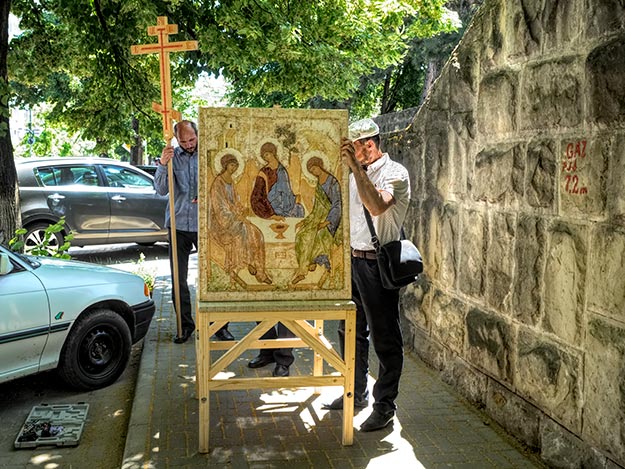
It seemed clear what the Russian government wanted – after all, the Transnistrian region is home to most of the industrial production of the country, as well as most of its mineral resources – but I wondered aloud what the people of the region want. “They want to be a part of Russia, but it’s a problem,” Valery said. “There is no geographic connection between Transnistria and Russia because Ukraine sits between them.” It made me wonder if the seizure of Crimea was just the first step in Putin’s plan to return Russia to the glory days of the USSR. A glance at a map was enlightening. The Crimean Peninsula is just a hop away from Odessa, Ukraine. Seizing the narrow southern strip of Ukrainian land that borders the Black Sea would connect Mother Russia with the breakaway Transnistria region.
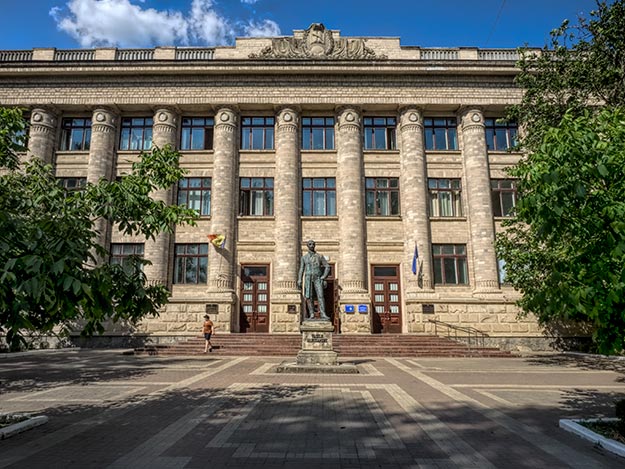
Transnistria has its own government, parliament, constitution, military, police, postal system, currency, national anthem, and coat of arms. Its flag is the only one in the world that still displays the Soviet hammer and sickle. However, not a single other country in the world has recognized Transnistria as a country. Interestingly, Transnistria is a multi-ethnic region. According to the census of 2015, ethnic Russians comprise 33.8% of the population, followed by 33.2% Moldovans and 26.7% Ukrainians. But even the census is mired in controversy. Moldovan insist they are a unique ethnic group, but they speak Romanian, which is the official language of the country.
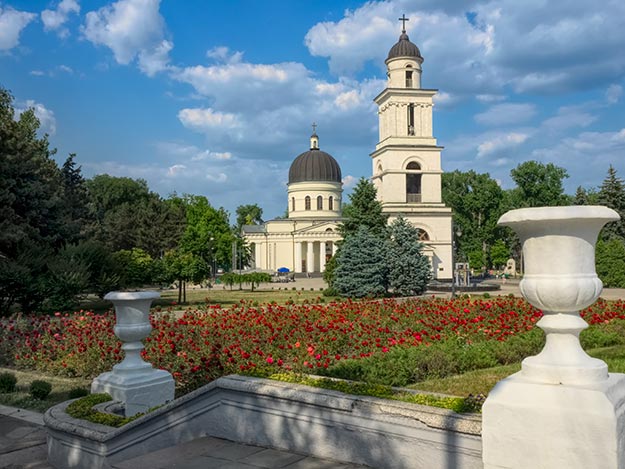
Exacerbating the situation (in Russia’s eyes), Moldova became an associate member of the European Union in 2014. Not only did this agreement set the country on the path to EU membership, it ensured that Moldovan wines would immediately have free access to European markets. Just a few months before the inking of the agreement, the Russian consumer-protection agency banned the sale of Moldovan wine, claiming that it contained dangerous traces of plastic. The thinly veiled attempt to stop Moldova from pursuing a relationship with the EU failed. But with 29% of the country’s wine production being exported to Russia, it was a blow to the Moldovan economy.
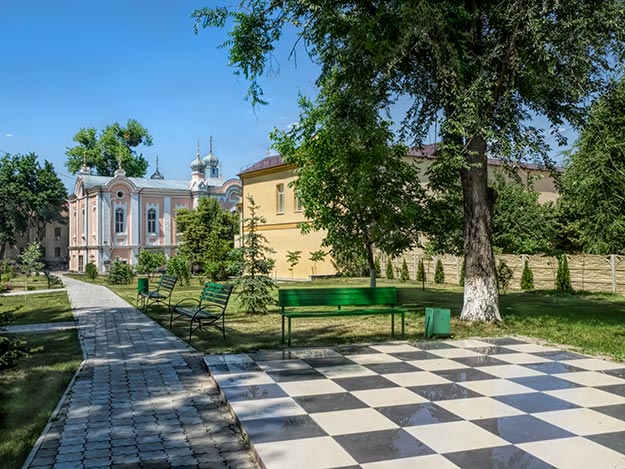
Today the main industries in Moldova remain wine and other agricultural products. Even tourism is a blip on their economic map. The average Moldovan earns only $350-450 per month, and the young people don’t see any future here, so most are intent upon leaving. However, some believe the situation is about to change for the better. In 2017, following the election of Russian-backed Igor Dodon as President, Russia began easing its ban on the importation of Moldovan wines. Dodon subsequently pledged to scrap the agreement with the EU, once a new parliament is in place.
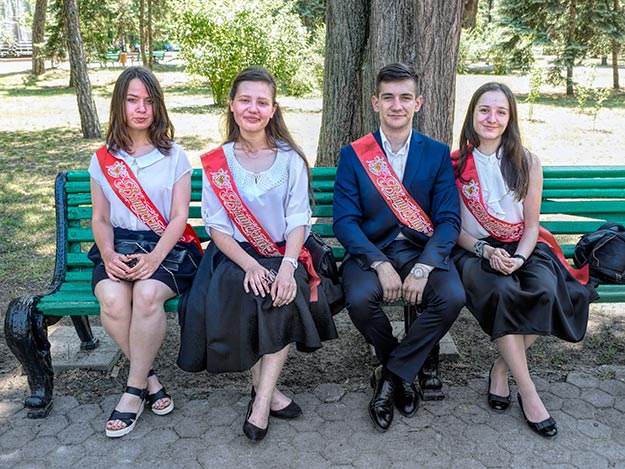
Despite the political drama and the difficulties of living in Europe’s poorest country, I found Moldovans to be a cheery sort. People passing me on the street smiled and nodded, and more than a few spoke good English. I’d fortuitously arrived in Chisinau on graduation day and the city was filled with students proudly wearing caps and silk sashes identifying their schools. Four young people sitting on a bench in the Central Park were only too happy to tell me – in perfect English – about their plans to attend university. These youngsters at least, were filled with promise and seemingly had no desire to leave Moldova.
I frankly enjoyed my short stay in Chisinau. With only about 110,000 visitors arriving in the country each year, it is one of the least touristy destinations on the planet. Yet it has much to offer. Despite having strong ties to Romania, where meat and potatoes are the order of the day, Moldovan food features delicious salads, fresh vegetables, and specialties like quiche and gourmet soups.
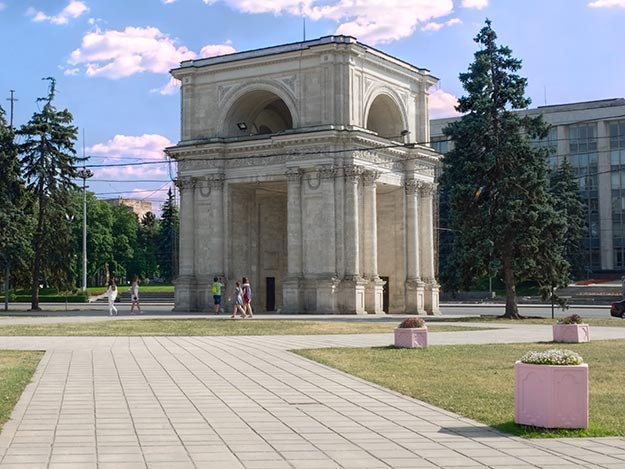
Just walking around the city center is a feast for the eyes. Chisinau is filled with museums, all of which are housed in gorgeous – albeit cracked and peeling – old mansions. Onion-domed Orthodox Christian churches stand side-by-side with old Soviet Brutalist apartment buildings, built for function rather than form. An incongruous copy of Paris’ Arc de Triomphe and a statue commemorating the victims of Soviet occupation and the communist totalitarian regime face one another across the city’s main boulevard. Interspersed between them are huge swathes of parkland that seem to be filled with people at all hours of the day. There’s even a beach in the center, located on the shores of a man-made lake. And of course, there’s always those wineries. A person could spend weeks just exploring the country’s wine cellars, which also include the world’s largest underground cellars at the Milestii Mici Winery.

Valery gave me a huge bear hug and a kiss on each cheek when he dropped me off around 3 p.m. I returned the hug without the slightest hesitation. I’ve always believed the universe brings people together who need one another. I may have helped Valery deal with his losses, but he gave me an equally precious gift. Being able to spend time with a native-born Moldovan ensured that my visit to Chisinau, Moldova, will always be one of my most cherished travel memories.

Moldova is one of my all time favourite places and I desperately want to take my friends back there to show them Chisinau, which I adored. I loved the fact that it is not perfect (as you noted museums in majestic but peeling paint buildings). People were charming and the pace of life slow but eventful. I adored your description and wish I could have written mine as beautifully as yours. It is a well written piece with interesting comments that I shall pass to my friends as confirmation that they should come back with me n not only believe my description.
Thanks so much for your comment Barry. I’m always delighted when readers tell me they also liked some of the out-of-the-way places that I tend to visit. Moldova was certainly an unexpectedly delightful place.
You totally captivated me I found your article informative and a delight to read. I am headed to Moldova next week and have only one day to sight see. Your tour sounds like a great think to do. How do I get a hold of your tour guide.
Hi Blanca: Unfortunately, I seen to have lost his card so I cannot give you his contact information. However, my hotel arranged for the tour, and they said there are very few English-speaking guides in Chisinau, so I suggest asking your hotel to try and find him.
Wow, I never knew or heard about Transnistria or Moldova before this post – definitely an interesting read.
I’m not surprised that Valery felt that way after talking to you…you leave this magical effect on people 😉
Thank you Nancy! Very kind of you to say. I’m back in Chiang Mai now. Hope you will return one day so we can spend some more time together.
What a delight to be able to connect on a spiritual level with Valery! Such experiences and knowing you’ve uplifted a fellow human-being are always very special. I’ve really enjoyed discovering a country about which I knew nothing and your photos, as always, are superb. Bless you!
Thank you, as always, Khali. It was one of my more special experiences, for sure.
Meeting someone from a different culture and being able to connect on such a deep level as you write about in this piece is one of the most worthwhile reasons to travel, in my opinion. Your experience of helping your tour guide to feel uplifted is very touching and very inspiring, and it also shows the depth of your character. Traveling for you is not just what you can get out of it. You care about the people of the country you visit. Imagine that! Thank you for uplifting me, too.
Gosh Deborah, thanks so much for your very kind comment. Like you said, it was the kind of experience that makes travel into a treasured moment and I felt so privileged to be a part of it.
Always love reading your posts. Especially love this post because I’ve never been to Moldova
Thanks so much Juan. There are SO many places in the world to visit, I don;t think I’ll ever exhaust them all.
Great to hear a story about these lesser known countries. Being from the USA and traveling full time, we are always looking for out of Schengen countries to visit. Your interesting story and excellent pictures made me put this one on the list.
Thanks Barbara… Lance
Hi Lance. It’s a bit bucolic, but as you say, great for those of us fleeing Schengen for 90 days, and you can’t beat the wine cellars!
Barbara,
What a great travel blog today! I rarely think of Russia with so much color and warmth these days! I am glad you are having this experience and sharing it with everyone. Your photos are extraordinary as usual. Thank you. Hugs, Morgan
Thanks Morgan! Big hug back to you 🙂